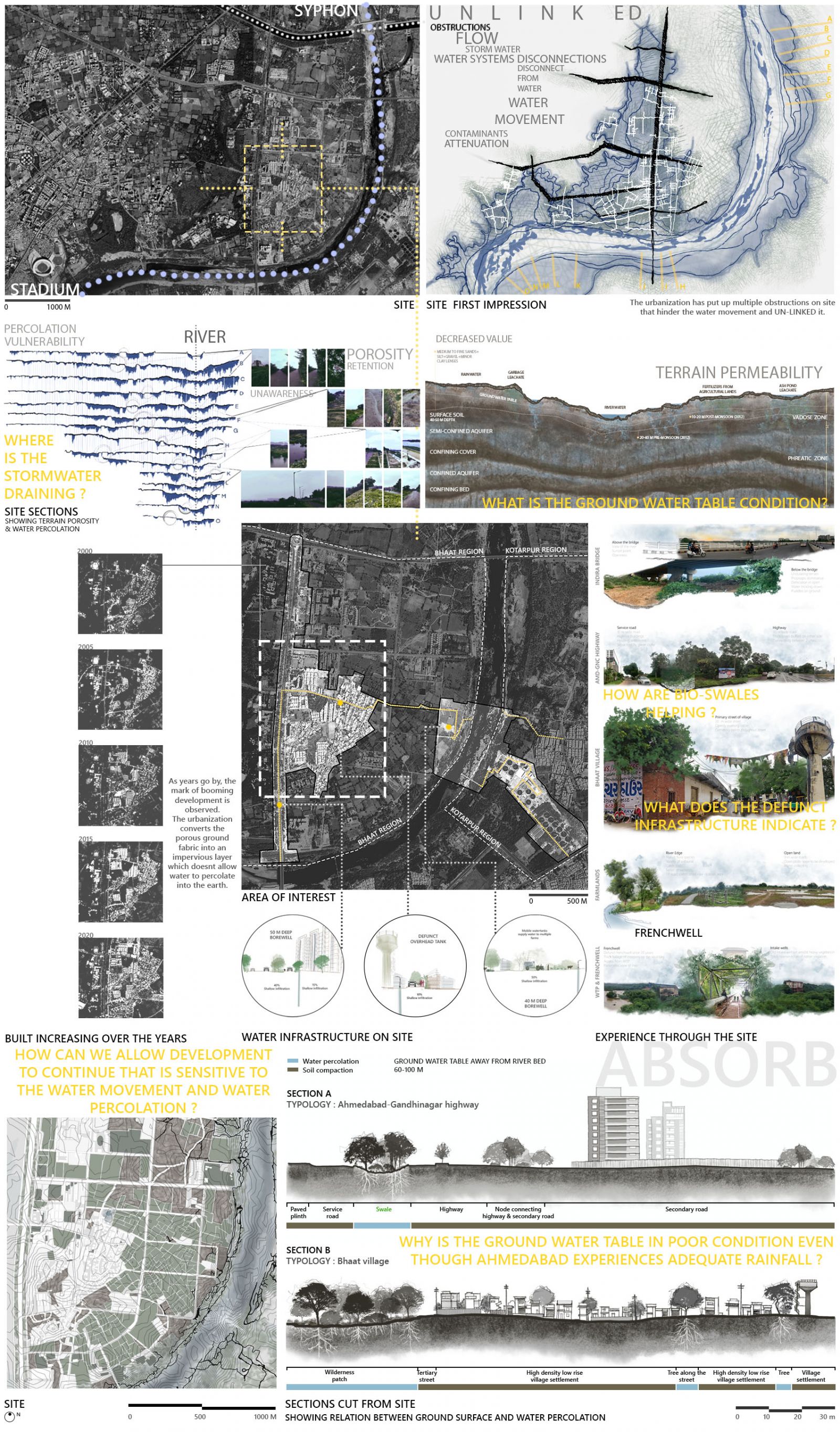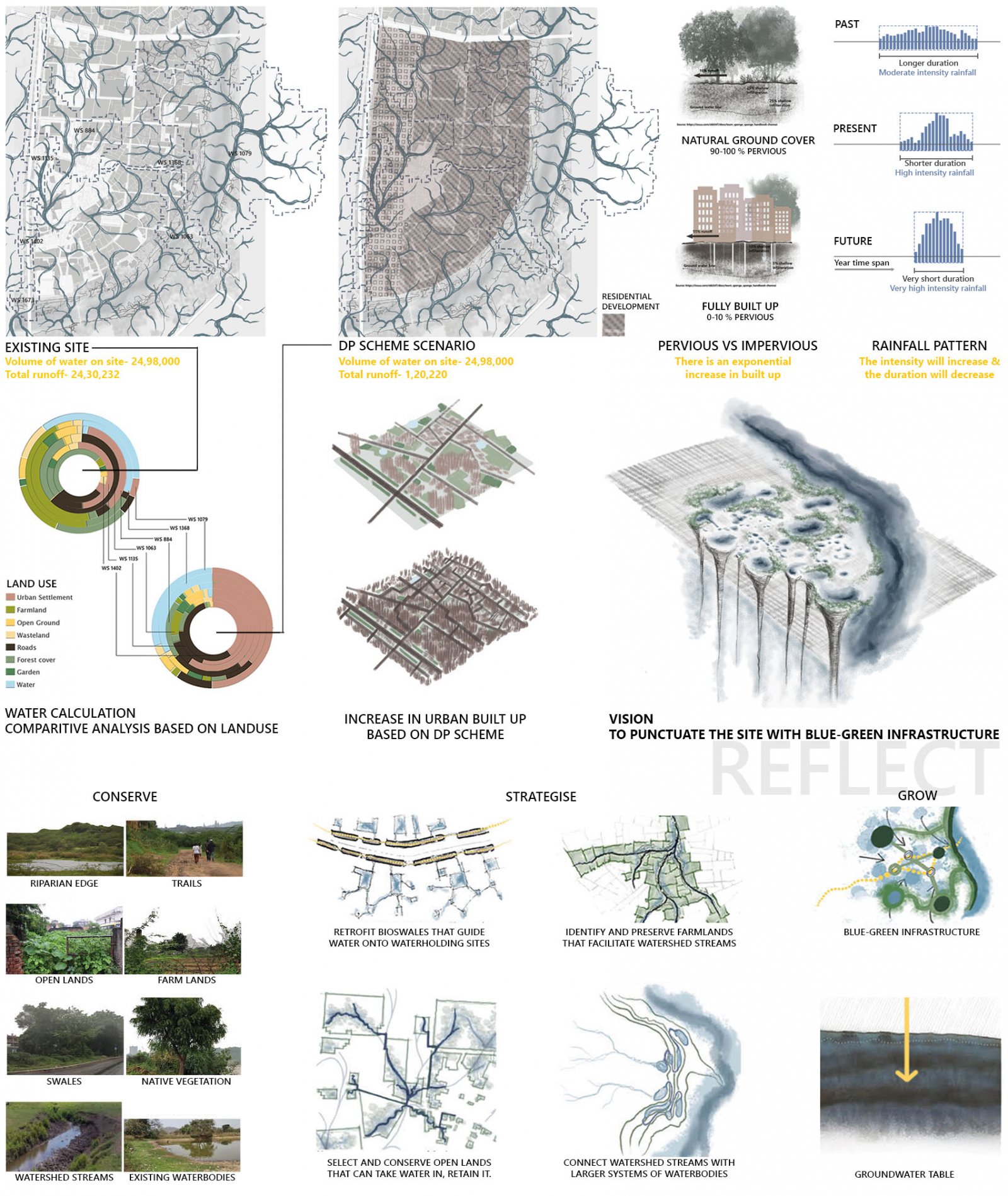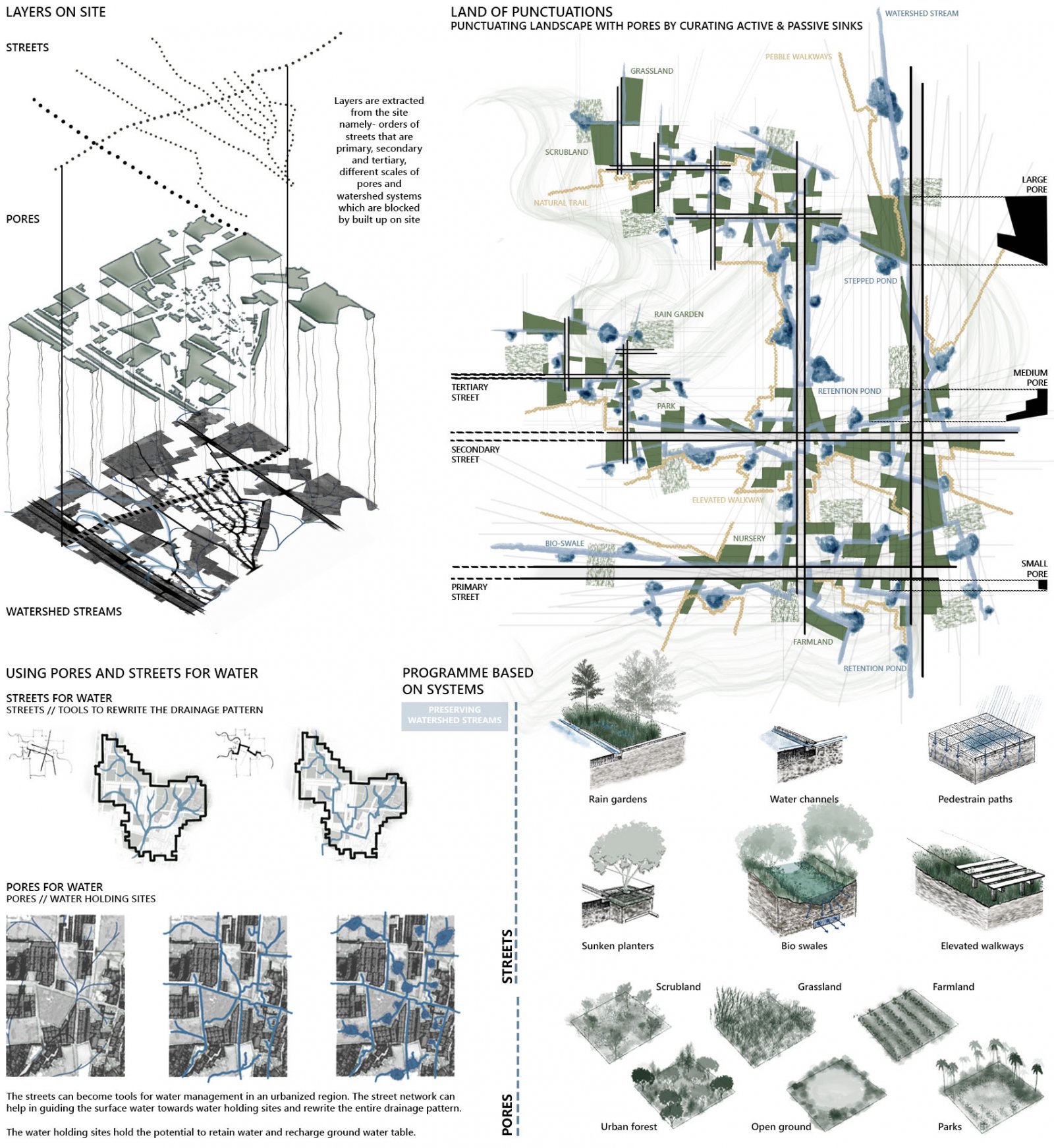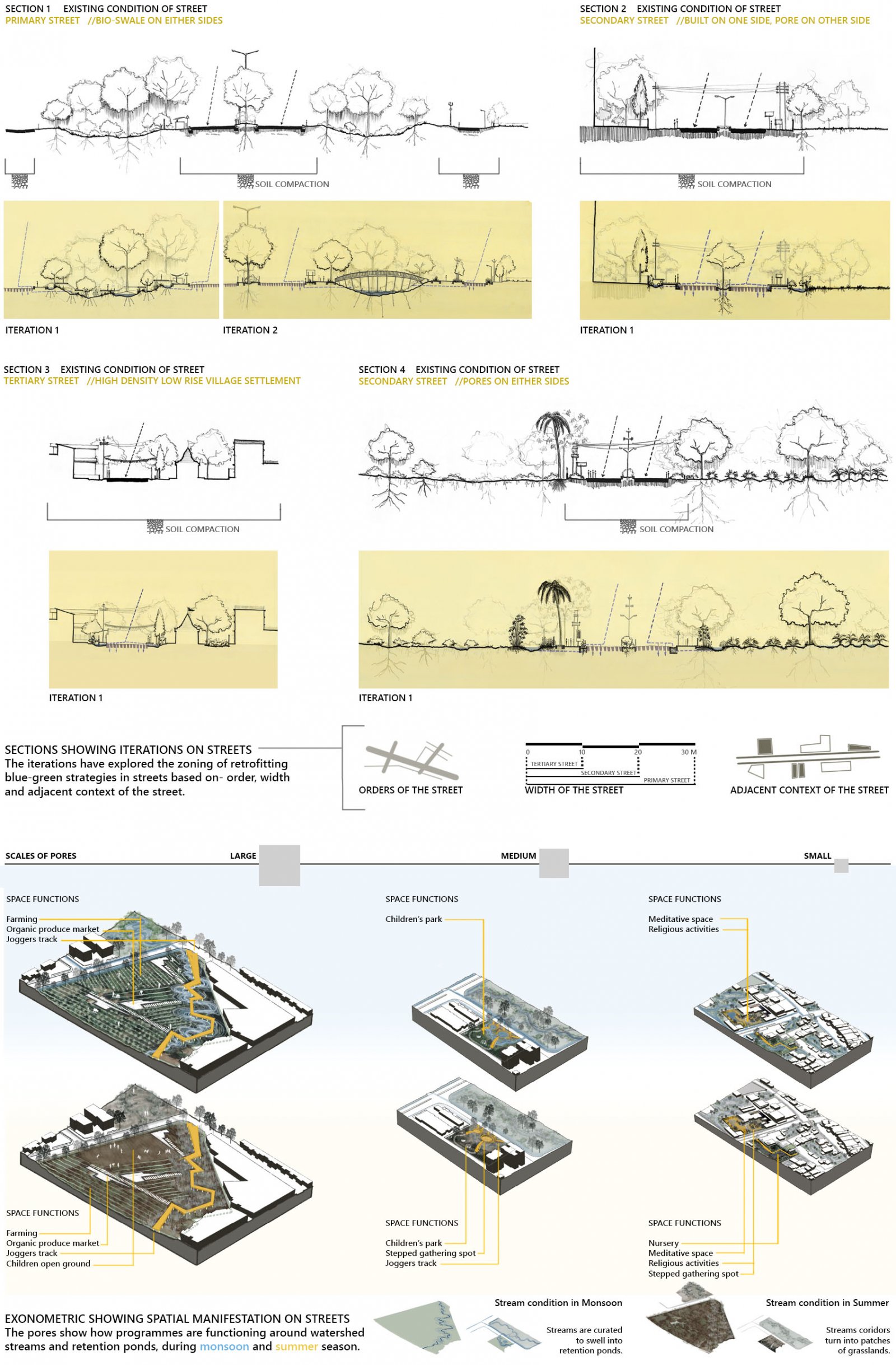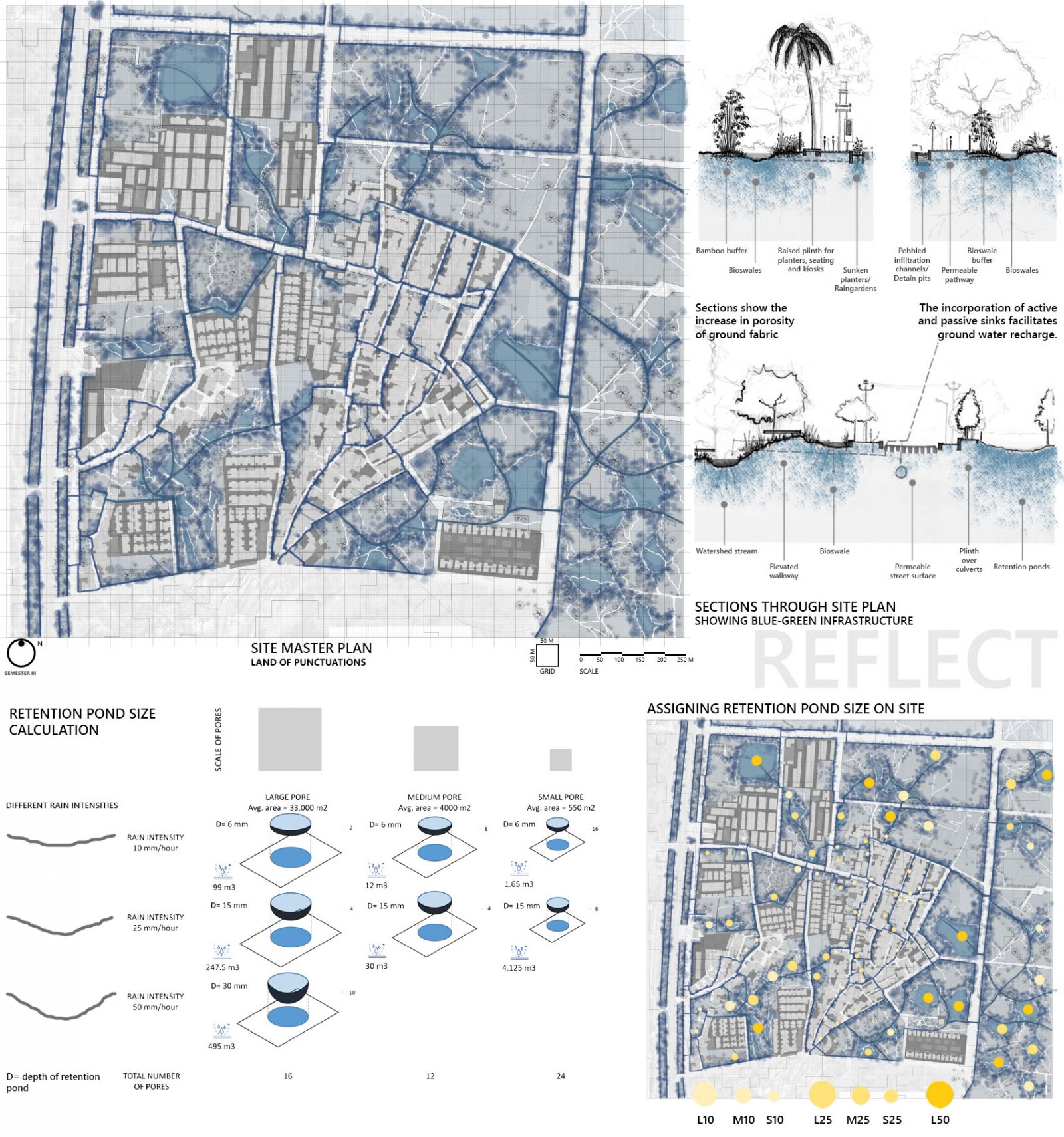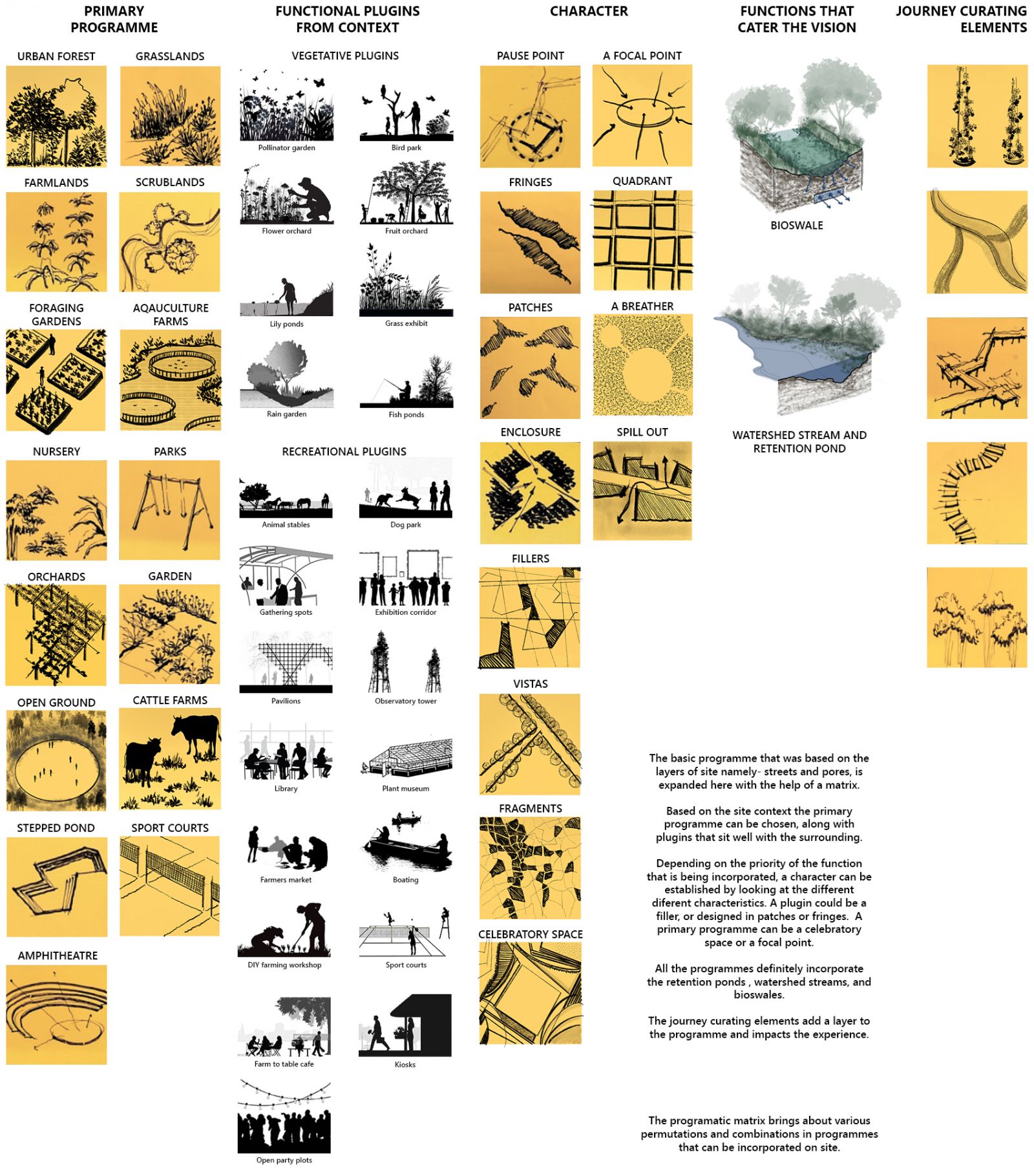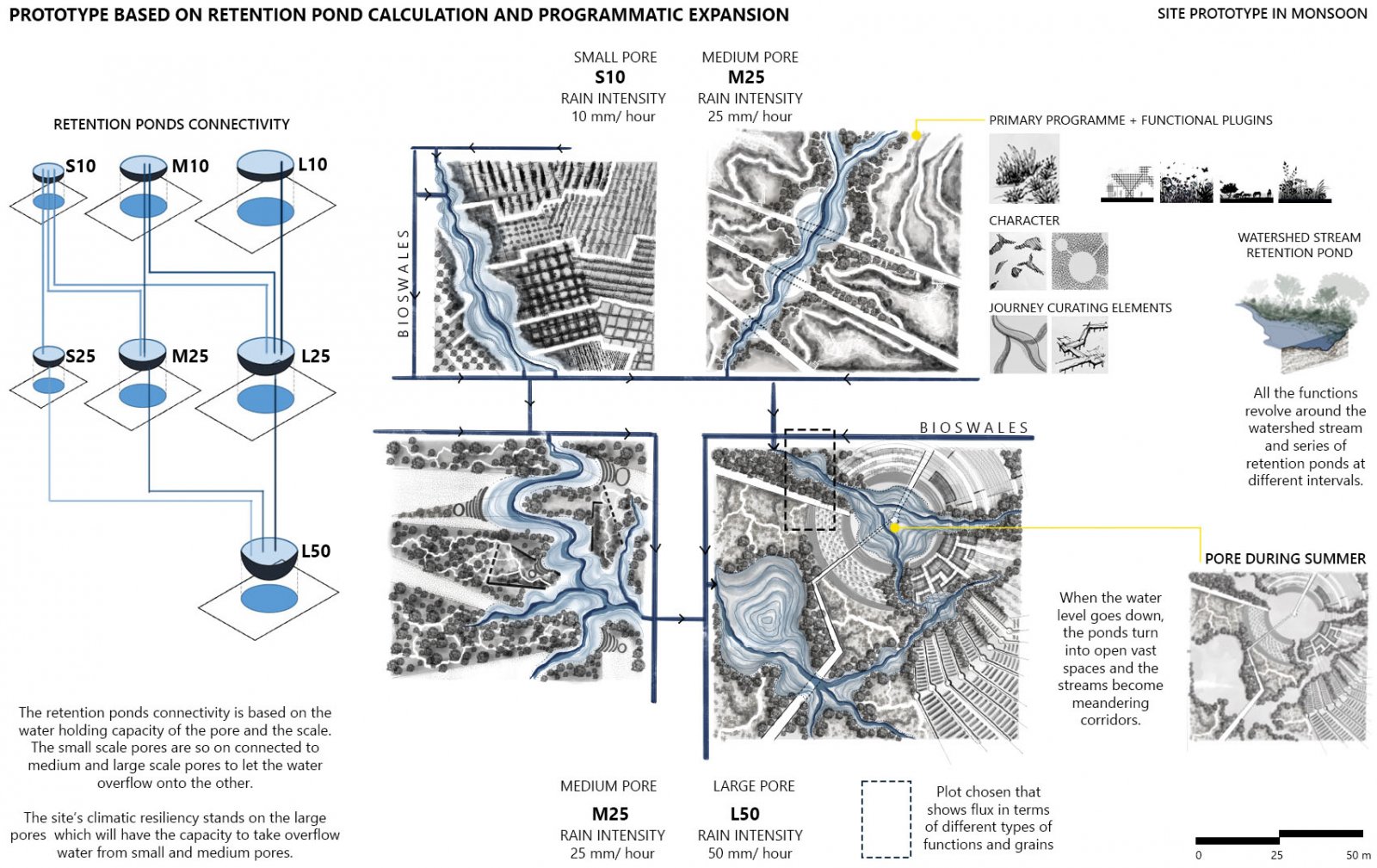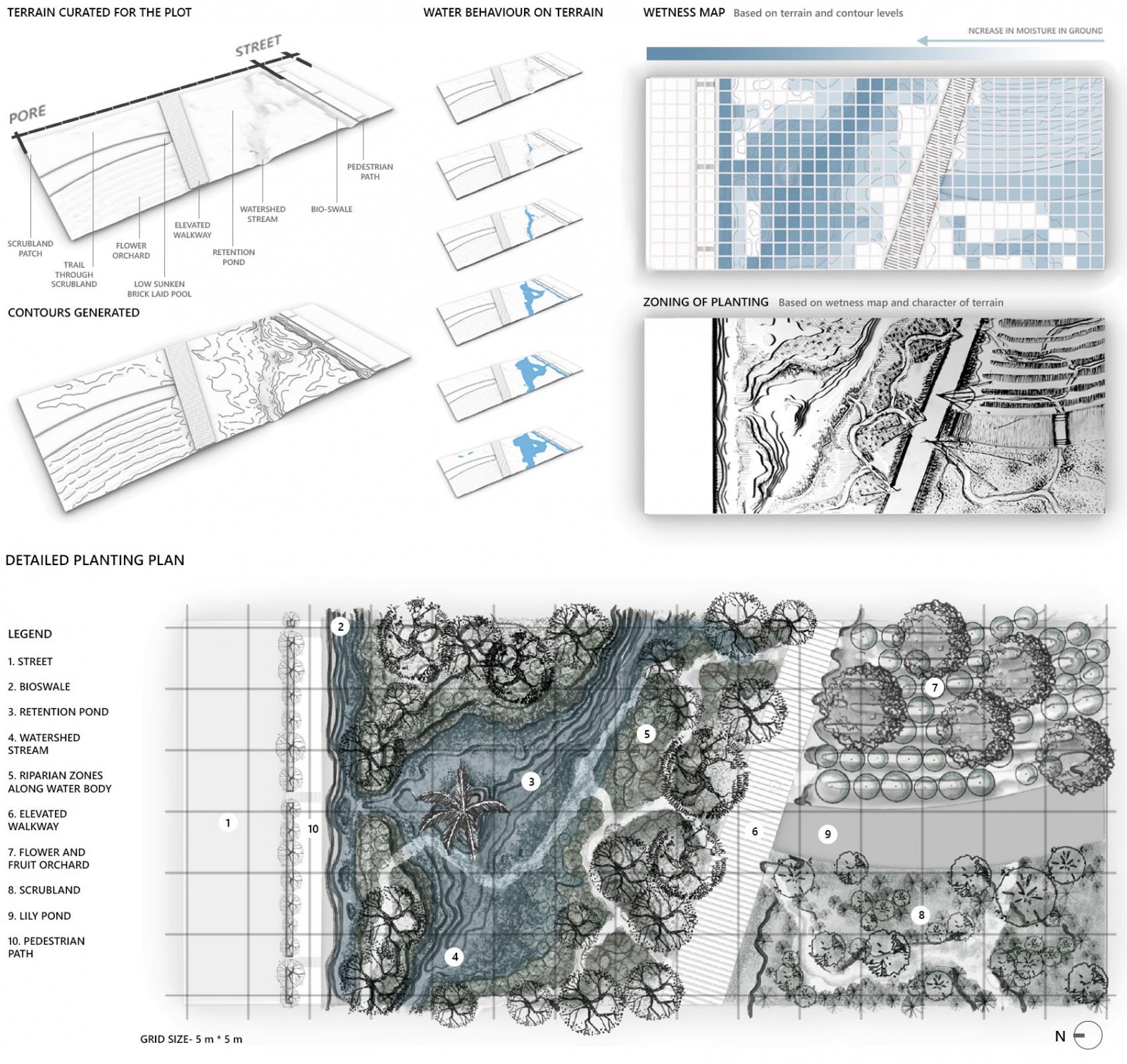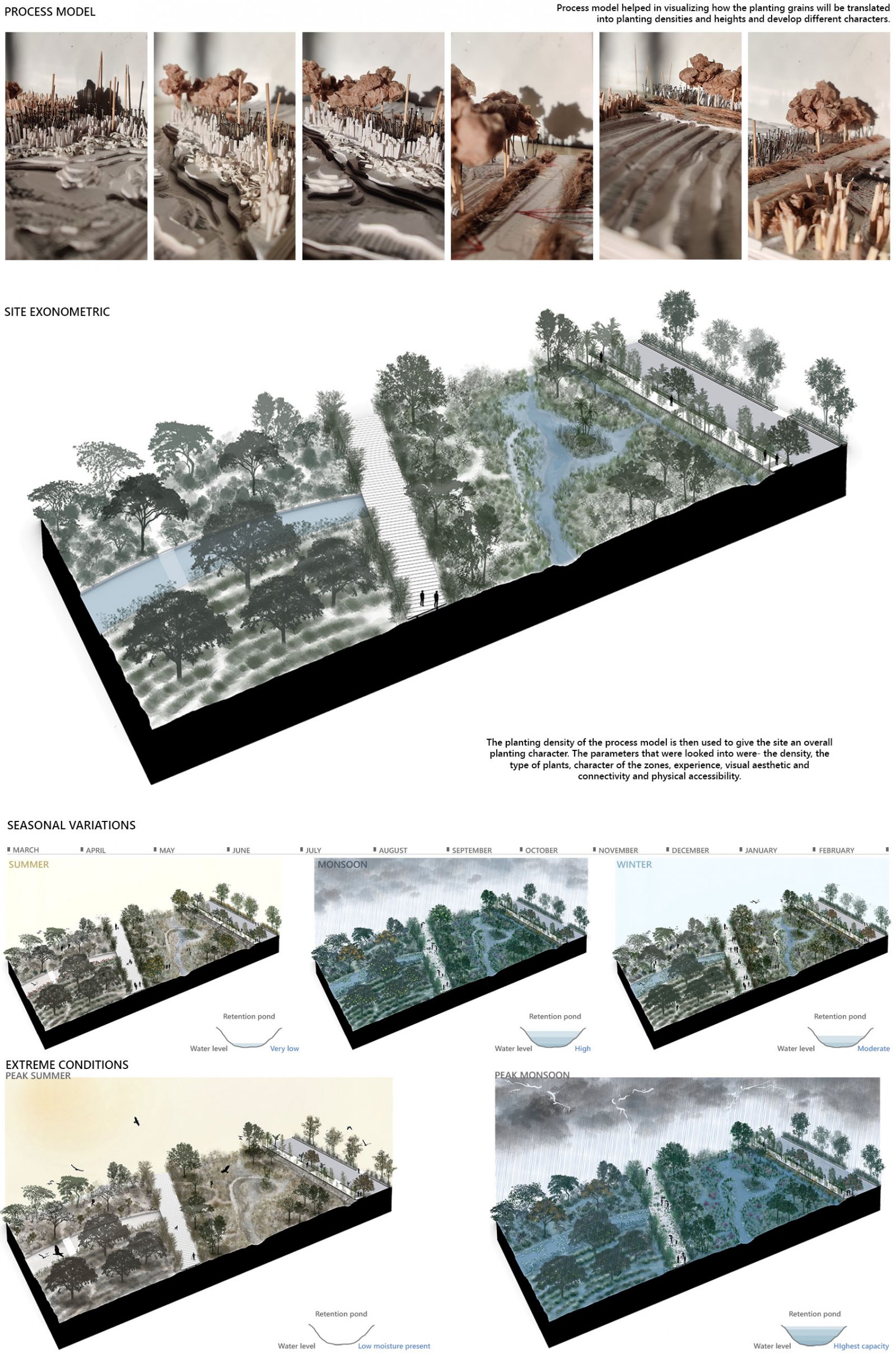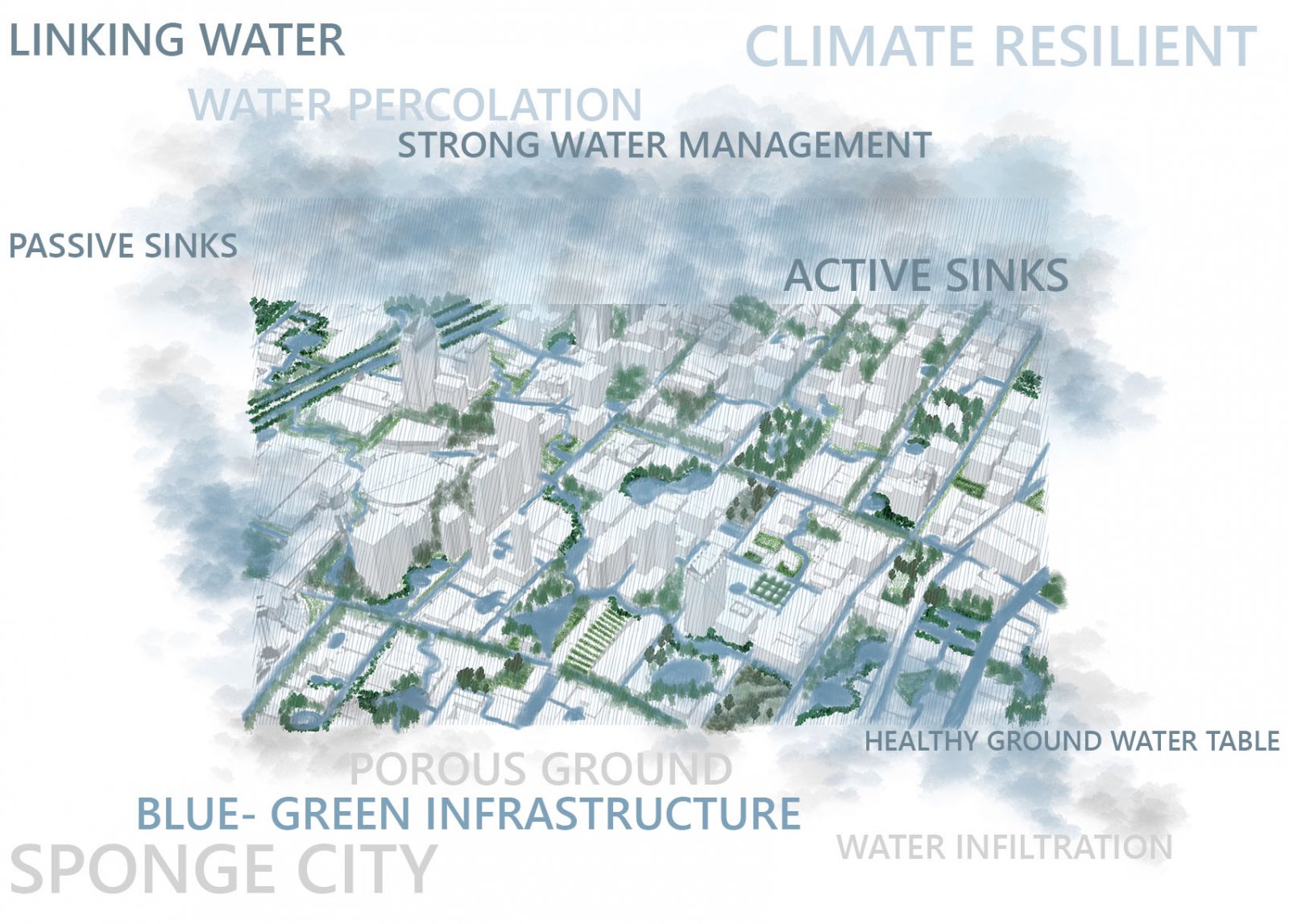Your browser is out-of-date!
For a richer surfing experience on our website, please update your browser. Update my browser now!
For a richer surfing experience on our website, please update your browser. Update my browser now!
Getting inundated with water through a short period of heavy rainfall is becoming accepted as a way of life. With rampant urbanization, almost every Indian city is experiencing waterlogging in monsoon. Simultaneously, with reduced recharge, the cities are constantly threatened with shortage of potable water. Every urban dweller has a similar story - too much or too little water. A rapid development boom underway in Ahmedabad along with climatic vulnerabilities, makes it a struggle between these two extreme water challenges. With such speedy urban growth, there is a need for blue-green strategies that will help in making the cities more climate resilient. By demonstrating on an area which is slated for development, the project showcases how this can continue to selectively happen along with the study and protection of natural hydrological systems. The project considers simple means of corridors of existing streams, a network of streets, and patches of open lands to transfer and hold water. Three main strategies are- identifying and preserving local watershed streams at a micro level that contribute to the larger water systems, the existing open lands as blue-green infrastructure, and interconnecting them by retrofitting bio-swales along with streets. These open lands can act as sponges in high rainfall events which will reduce the risk of flood disasters by ‘detaining-retaining-recharging’ stormwater. Hence the name ‘Land of punctuations’.
View Additional Work